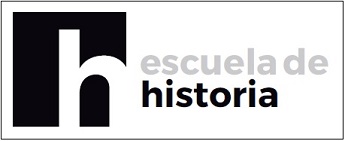Greek egalitarianism and polis: on the concept of “wide-base oligarchy” by Victor Davis Hanson
DOI:
https://doi.org/10.35305/aeh.vi38.387Abstract
This paper is an inquiry into the explanatory scope of the concept of “wide-base oligarchy” used by Victor Davis Hanson in order to account for the problem of equality in the Greek polis. This concept was developed together with the Hansonian thesis of Greek agrarian egalitarianism. However, it is here proposed to demonstrate that the notion of “wide-base oligarchy” is shaped from a horizon in which the author’s antidemocratic prejudice converges with his anti-egalitarian pre-conception. These prejudices guide the process of selection and organization of historical information, but sometimes lead Hanson into making statements difficult to sustain with the available evidence. In conclusion, the concept of “wide-base oligarchy” is not very effective as an explanatory tool and does not contribute to the understanding of the phenomenon of equality in the Greek polis.Downloads
References
Barceló, P. y Hernández de la Fuente, D. (2014). El pensamiento político griego: teoría y praxis. Madrid: Trota editorial.
Bearzot, C (2003). Il concetto de "dynasteia" e lo stato ellenistico. En Bearzot, C., Landucci, F. y Zechinni, G. (Ed.) Gli stati territoriali nel mondo antico. Roma: Vita e Pensiero, 21-44.
Cammack, D. (2019). The Dēmos in Demokratía. The Classical Quaterly, 69(1), 42-61. https://doi.org/10.1017/S0009838819000636
Canfora, L. (2014). El Mundo de Atenas. Barcelona, Anagrama.
Donlan, W. (2005) The relations of power in the pre-state and early state polities. En Mitchell, L. y Rhodes, P.J. (Eds.) The Development of the Polis in Archaic Greece. Londres: Routledge, 21-25.
Finley, M. (1982). Esclavitud antigua e ideología moderna. Barcelona: Crítica.
Finley, M. (1986). El nacimiento de la Política. Barcelona: Crítica.
Finley, M. (2000). La Grecia antigua. Crítica: Barcelona.
Gallego, J. (2003). El mundo rural en la Grecia Antigua. Madrid: Akal.
Gallego, J. (2005). Campesinos en la ciudad. Bases agrarias de la infantería hoplita. Buenos Aires: Editorial del Signo.
Gallego, J. (2009a). El campesinado en la Grecia Antigua. Una historia de la igualdad. Buenos Aires: Eudeba.
Gallego, J. (2009b). La polis entre dos lógicas de lo social: Del parentesco a la política en el mundo griego. En Campagno, M. (Ed.) Parentesco, patronazgo y estados en las sociedades antiguas. Buenos Aires: FFyL UBA, 147-176.
Gallego, J. y Valdés Guía, M. (2014). El campesinado ático y el desarrollo de la democracia ateniense. Buenos Aires: Miño y Dávila.
Gallego, J. (2018). La anarquía de la democracia. Asamblea ateniense y subjetivación del pueblo. Buenos Aires: Miño y Dávila.
Hammer, D. (2002). The Iliad as Politics. The performance of Political Thought. Oklahoma: University of Oklahoma Press.
Hanson, V. D. (1999a). The Other Greeks. The Family Farm and the Agrarian Roots of Western Civilization. Los Angeles: University of California Press.
Hanson, V. D. (1999b). The Wars of the Ancient Greeks and the Invention of Western Military Culture. London: Cassell.
Hanson, V. D. (2003). Antes de la democracia. El igualitarismo agrícola y la ideología subyacente tras el gobierno constitucional griego. En Gallego, J. (Comp.) El mundo rural en la Grecia Antigua. Madrid: Akal, 222-268.
Hanson, V. D. (2012). Génesis de la infantería. En Parker, G. (Ed.) Historia de la Guerra. Madrid: Akal.
Hanson, V. D. (2014). The Idol of Equality. National Review. https://www.nationalreview.com/2014/01/idol-equality-victor-davis-hanson/
Hanson, V. D. (2017). Equal by Catastrophe. Inference Review. https://inference-review.com/article/equal-by-catastrophe. https://doi.org/10.37282/991819.17.37
Hanson, V. D. (2021). The Dying Citizen. How Progressive Elites, tribalism, and Globalization Are Destroying the Idea of America. New York: Basic Books.
Loraux, N. (2008a). La Guerra Civil en Atenas. La política entre la sombra y la utopía. Madrid: Akal.
Loraux, N. (2012). La invención de Atenas: Historia de la oración fúnebre en la "ciudad clásica". Buenos Aires: Katz editors.
Mac Gaw, C. (2008). La ciudad antigua: aspectos económicos e historiográficos. Studia Historica, Historia Antigua, 26, 237-269.
Meiksins Wood (1995). Democracia contra capitalismo. México D.F.: Siglo XXI Editores.
Meiksins Wood, E. (2003). La polis y el ciudadano campesino. En Gallego, J. (Ed.) El mundo rural en la Grecia Antigua. Madrid: Akal, 269-326.
Nelson, E. (2004). The Greek Tradition in Republican Thought. New York: Cambridge University Press.
https://doi.org/10.1017/CBO9780511490644
Olivera, D. A. (2020). Los Kagan. Historia y pensamiento político neoconservador. Huellas de Estados Unidos. Estudios y debate desde América Latina, 19, 124-144. http://www.huellasdeeua.com/ediciones/edicion19/05_Diego_Alexander_Olivera_Los_Kagan.pdf.
Paiaro, D. (2018). Entre el "gobierno de la muchedumbre" y la "dictadura del proletariado". La historiografía de la democracia ateniense frente al espejo de la revolución. En Moreno Leoni, A. y Moreno, A. (Eds.) Historiografía Moderna sobre Mundo Antiguo. Córdoba: Tinta Libre, 93-134.
Pettit, P. (2004). Liberalismo y Republicanismo. En Ovejero, F., Martí, J. L. y Gargarella, R. (Comps.) Nuevas ideas republicanas. Autogobierno y libertad. Barcelona: Paidos.
Plácido, D. (2008). El territorio de la polis. Explotación agrícola y organización política. La ocupación del espacio y la imagen del territorio. En Gallego, J. y Miceli, P. (Coord.) Habitar, producir, pensar el espacio rural. De la Antiguëdad al Mundo Moderno. Buenos Aires: Miño y Dávila, 47-58.
Raaflaub, K. (2005). Soldiers, Citizens and the Evolution of the Early Greek Polis. En Mitchell, L. y Rhodes, P.J. (Eds.) The Development of the Polis in Archaic Greece. Londres: Routledge, 26-31.
Riaudel, M. (2015). Literatura vs. Historia: ¿una cuestión anacrónica? El hilo de la fábula. Revista del Centro de Estudios Comparados (15), 17-30. https://doi.org/10.14409/hf.v0i15.5021
Roberts, J. (1994). Athens of Trial. The Antidemocratic Tradition in Western Thought. Princeton: Princeton University Press.
Rhodes, P. J. (2000). Who ran Democratic Athens? En Flensted-Jensen, P., Heine Nielsen, T. y Rubinstein, L. (eds.) Polis and Politics. Studies in Ancient Greek History. Copenhagen: University of Copenhagen, 465-477.
Sancho Rocher, L. (2022). Aristóteles y la posibilidad de una mesé politeía. Araucaria. Revista Iberoamericana de Filosofía, Política, Humanidades y Relaciones Internacionales, año 24, nº 49, 351-372. https://revistascientificas.us.es/index.php/araucaria/article/view/20050. https://doi.org/10.12795/araucaria.2022.i49.17
Springs, S. (2007). The Uses of History: Deliberative Analogy and Victor Davis Hanson. Contemporary Argumentation and Debate, Vol. 28, 91-115.
Tocqueville, A. (2002). Democracy in America. Penn State Electronic Classics Series Publication.
Vernant, J. P. (1992). Los orígenes del pensamiento griego. Buenos Aires: Paidos.
Published
How to Cite
Issue
Section
License
Copyright (c) 2023 Diego Alexander Olivera

This work is licensed under a Creative Commons Attribution-NonCommercial-ShareAlike 4.0 International License.
Los autores que publican en esta revista están de acuerdo con los siguientes términos:
Al momento de enviar sus contribuciones, los colaboradores deberán autorizar su publicación conservando los derechos de autoría, y transfiriendo a la revista todos los derechos protegidos por las leyes de propiedad intelectual que rigen en Argentina, que implican la edición para difundir la obra en soporte digital en que se aloja la revista. Deberán declarar que poseen el permiso del archivo o repositorio donde se obtuvieron los documentos que se anexan al trabajo, cualquiera sea su formato (manuscritos inéditos, imágenes, archivos audiovisuales, etc.), permiso que los autoriza a publicarlos y reproducirlos, liberando a la revista y sus editores de toda responsabilidad o reclamo de terceros.
Asimismo, los autores deben adherir a la licencia Creative Commons denominada “Reconocimiento - No Comercial- Compartir Igual CC BY-NC-SA”, mediante la cual el autor permite copiar, reproducir, distribuir, comunicar públicamente la obra y generar obras derivadas, siempre y cuando se cite y reconozca al autor original. No se permite, sin embargo, utilizar la obra con fines comerciales. Los autores podrán establecer acuerdos adicionales para la distribución no exclusiva de la versión de la obra publicada en la revista (por ejemplo, situarlo en un repositorio institucional o publicarlo en un libro), con el reconocimiento de haber sido publicado primero en esta revista.



.png)







1.jpg)
.png)














1.png)
